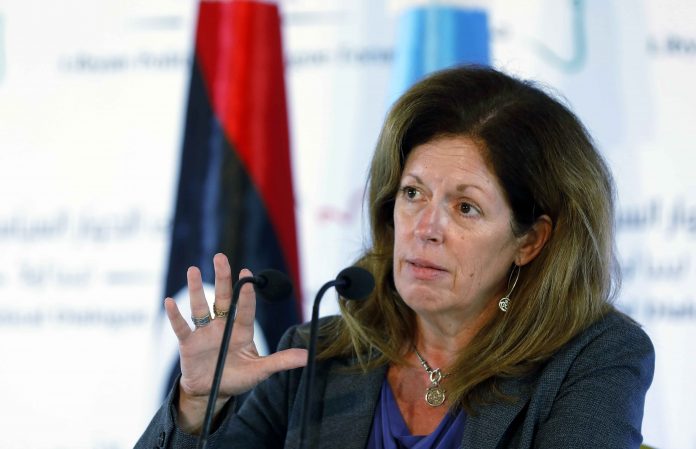
By JAMEY KEATEN and SAMY MAGDY
Associated Press
GENEVA (AP) — The head of the United Nations mission in Libya said Thursday the main military commander from the divided country’s east has given his backing to an ongoing U.N. effort to choose an interim government before an election can be held this year.
Stephanie Williams, the U.N. secretary-general’s deputy special representative for political affairs in Libya, expressed hope that a 5-day meeting near Geneva this week would culminate Friday with the selection of an interim prime minister and a three-person Presidency Council.
The selections are seen as a key step for Libya nearly a decade after the ouster and death of leader Moammar Gadhafi. The meeting, the Libyan Political Dialogue Forum, has brought together 75 delegates.
The devastated and lawless North African country is split between two rival governments — the internationally recognized one based in the capital, Tripoli, and another in the east. Turkey supports Tripoli, while Egypt, Russia and the United Arab Emirates support the forces of Khalifa Hifter, a military commander who runs most of the east and south.
Williams, an American diplomat who is serving in a temporary role as mission chief, said in an interview that she spoke to Hifter last week and he told her he was “fully supportive” of the U.N. efforts.
Once the caretaker government is assembled, she said, both of the current governments would disappear.
“Parallel institutions go away: You have unity of institutions,” Williams said.
She has repeatedly cautioned about the presence of foreign fighters and mercenaries in Libya, and estimated in December that they numbered at least 20,000.
The Libyan Political Dialogue Forum is choosing the interim authority that will oversee Libya as part of an effort to rebuild state institutions and lead to a national election on Dec. 24.
The prime minister is to be chosen by the candidate winning 70% of votes. Twenty-one candidates are running for prime minister, and 24 candidates are vying for the presidential council posts.



















